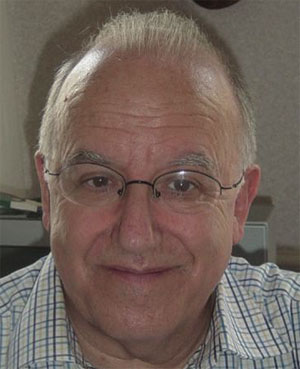Two-Day Conference Puts Spotlight on Digital Money
Irvine, Calif., Sept. 24, 2008 -- Everyone knows money talks. Keith Hart ranks it right up there with language as a conduit for human communication.
The professor emeritus of anthropology at the University of London’s Goldsmith’s College delivered the keynote address at “Everyday Digital Money: Innovation in Money Cultures and Technologies.”
|
The two-day conference, held last week at Calit2@UCI, was sponsored by UCI’s Department of Anthropology and Intel’s People and Practices Research Group. Experts from around the world surveyed the emerging digital-money landscape from technology, social science, business, policy, development and design perspectives.
Hart began by addressing the ways in which the digital revolution has impacted the flow of money and thus, society in general. The digital revolution has transformed the process of buying and selling by radically lowering the cost of commodities as well as the cost of information itself. “The digital revolution is not simply a technology revolution,” he said, but a social revolution – in essence, an attempt to form a new society.
“This sense that the world is coming together has existed before,” he cautioned, citing the Napoleonic wars, the abolitionist movement and the period from the 1880s to the First World War. The danger, Hart continued, is that historically, periods of globalization have been followed by fragmentation and the collapse of world society, and there are those who are already worried about the fragmentation and fragility of the Internet, he said. “The sense that we’re on a one-way track to ever-increasing global integration may turn out to be another temporary phase.”
Hart, author of “The Memory Bank,” said that America’s financial crisis over the past year has made it clear to most that some government intervention is necessary to restore order. “I actually believe in the resilience of the world economy but the assumptions of the last 30 years are dead,” he said. The idea that the market will continue to be fueled by new and innovative technologies must be replaced by a more pragmatic approach.
The value of money underwent a transformation in 1971, when the U.S. abandoned the gold standard. Wild fluctuations in the international exchange rate resulted, leading to the creation in 1975 of the futures market. This, in turn, led to the development of other derivatives, which, in Hart’s view, are at least partly responsible for the system’s current problems.
In 1975, Hart said, all but about 1 percent of money traded internationally was used to purchase goods and services. By 2005, the scenario was completely reversed; 99 percent of internationally traded money was used to purchase money in some other form.
“The whole pyramid scheme that is collapsing around our ears at the moment went by the name of the market. The market was this enormous sea-tide of money in countless and unknowable forms,” he said. “The Fed, the only remaining big-muscle player in the world economy, was completely incapable of doing anything about derivatives. The money circuit escaped from the political control that was imposed in the mid-20th century.”
Hart concluded that it is important to discuss “the greed, looting, theft and grotesque abuse of public responsibility” that created the current financial predicament. “It’s fairly obvious that what went on was a social disaster and should be punished.”
Hart’s keynote speech was followed by three sessions in which papers were presented that provided insight into alternative monies, credit and debit cards, and the design and adoption of innovation. The conference’s first day concluded with a panel discussion that included Julia Elyachar, UCI anthropology professor; Amolo Ng’weno, from the Bill and Melinda Gates Foundation; and Intel’s chief economist, Paul Thomas.
Day two began with a presentation of papers detailing the challenges and opportunities presented by online money transactions, including security considerations and how money intersects with culture, economy and society. Authors of other papers discussed the future of money transactions, and the wide spectrum of mobile-payment and transfer systems, including ePayment systems in Africa, mobile phone and money transfers in Uganda, m-banking in Kenya and digital remittance in El Salvador.
The closing keynote was delivered by Jonathan Donner from Microsoft Research India, who discussed mobile banking, specifically ways to link the technology’s adoption, impact and use.
The conference, which was organized by Scott Mainwaring from Intel and UCI professor Bill Maurer, also served as a launch pad for UCI’s new "Institute for Money, Technology, and Financial Inclusion," funded by a $1.7 million grant from the Bill and Melinda Gates Foundation. Maurer will serve as the founding director of the institute, which will explore how the world's financially disadvantaged populations use technology to spend, store and save money, as well as the impact of the emerging mobile banking industry on these practices. The institute will also provide scholarships to others who conduct such research.

